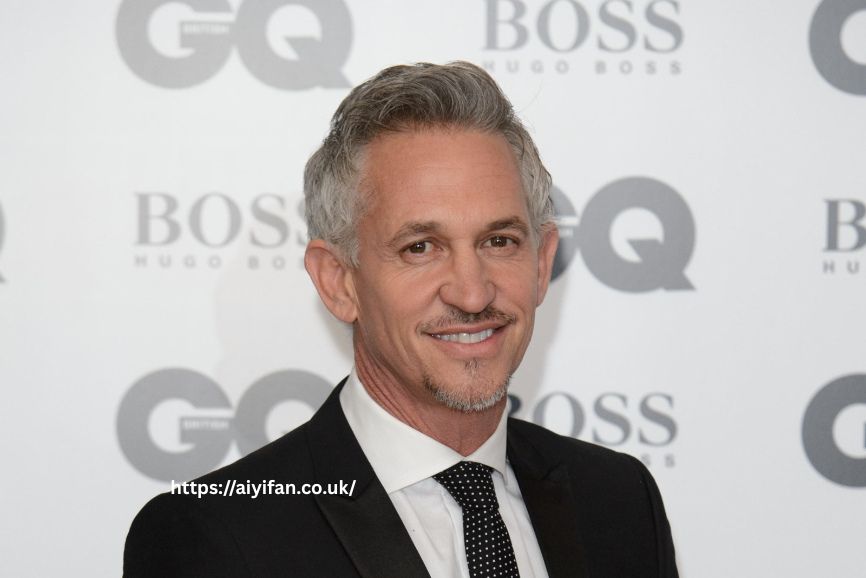The Gary Lineker Story Football, Media, and Influence Beyond the Pitch

Gary Lineker name is one of the most recognizable in English football. He’s remembered not only as a legendary striker but also as a witty, charismatic voice in sports media. His journey from scoring goals at Leicester to becoming the face of BBC’s Match of the Day tells a bigger story about the changing role of footballers once the boots are hung up. Beyond the numbers and the silverware, Lineker’s career is about influence on the pitch, on television, and in shaping conversations in British culture.
Early Life and Rise to Football Stardom
Gary Lineker was born on 30 November 1960 in Leicester, England, to a family that ran a greengrocer’s stall. Football came naturally to him; as a boy, he honed his skills in the local parks before joining Leicester City’s youth setup. By the late 1970s, he had broken into the first team.
What made him special wasn’t just his knack for scoring goals, but how he scored them. Gary Lineker had razor-sharp movement, always finding space in the box, and finishing with calm precision. Unlike some forwards, he wasn’t known for spectacular long-range shots. Instead, he perfected the art of being in the right place at the right time.
In 1985–86, Lineker finished as the First Division’s top scorer, securing a move to Everton. That season with the Toffees was extraordinary 30 league goals, plus a PFA Player of the Year award. Soon after, the big call came: Barcelona.
Gary Lineker at Barcelona An Englishman Abroad
English players often struggled in Spain, but Gary Lineker adapted quickly. Signed by Terry Venables in 1986, he became an instant hit at the Nou Camp. Fans remember his famous hat-trick in El Clásico against Real Madrid, cementing his place in Barcelona folklore.
In three seasons, he scored 42 goals in 103 appearances, helping the Catalan club to win the Copa del Rey in 1988. For Lineker, Barcelona wasn’t just about trophies it was about learning a different style of football, a more tactical and technical game that broadened his footballing mind.
The England Hero World Cup 1986 and Beyond
For many, Gary Lineker greatest moments came in the white shirt of England. At the 1986 World Cup in Mexico, he won the Golden Boot with six goals, including a memorable hat-trick against Poland. Though England’s campaign ended in heartbreak at the hands of Diego Maradona’s infamous “Hand of God,” Lineker’s reputation soared.
He also played a huge part in Italia ’90, scoring four goals and helping England reach the semi-finals their best run since 1966. His emotional gesture, famously consoling teammate Paul Gascoigne after his tears, showed a different side of him: a leader with empathy.
By the end of his international career, Lineker had scored 48 goals in 80 appearances, finishing just one short of Sir Bobby Charlton’s England record at the time. Remarkably, he achieved it without ever receiving a yellow or red card a testament to his fair play.
From Player to Presenter A Smooth Transition
When Gary Lineker retired in 1994 after a spell with Nagoya Grampus Eight in Japan, he faced a choice: fade quietly into football history, or reinvent himself. He chose the latter.
Lineker became a sports broadcaster, and his natural charm, dry humor, and articulate insights made him a hit. Soon, he was fronting the BBC’s flagship show, Match of the Day, a position he has held for over two decades. His presenting style is relaxed, never overbearing, yet sharp when it comes to analysis.
He became the bridge between football generations viewers who remembered him as a striker, and younger fans who grew up with him as the voice of Premier League highlights.
Gary Lineker in Media and Culture
Beyond football, Lineker tapped into the wider media landscape. In the 1990s, he became the face of Walkers Crisps, a partnership that turned into one of the most successful advertising campaigns in UK history. For nearly three decades, his cheeky grin on crisp packets made him as much a cultural icon as a sporting one.
He also embraced the world of podcasts and social media. With shows like The Rest is Football, Lineker connects directly with fans, offering stories, banter, and insights in a more casual format. On Twitter (X), he’s outspoken, whether on football matters, politics, or social issuesv something that has occasionally landed him in controversy but also demonstrated his willingness to stand for his beliefs.
Influence Beyond the Pitch
Gary Lineker influence stretches well beyond football highlights. A few key areas show just how far his reach extends:
- 1. Sports Media Pioneer
He helped set the tone for modern football broadcasting: witty, analytical, and fan-friendly, avoiding jargon while keeping discussions sharp. His success showed that ex-players could move seamlessly into serious media roles without needing to be comedians or bland pundits.
- 2. Political and Social Voice
Unlike many sports figures who avoid politics, Gary Lineker speaks out. From refugee rights to government policies, he uses his platform to push conversations. This willingness to speak his mind has sometimes put him at odds with the BBC, raising questions about impartiality, but it’s also made him one of Britain’s most outspoken public figures.
- 3. Charity and Advocacy
Lineker has supported charities like Cafod, the UNHCR, and numerous children’s causes. He often leverages his platform to draw attention to humanitarian crises, blending celebrity with conscience.
Legacy as a Footballer
While his media work is impressive, his footballing record remains extraordinary. Across his career, Lineker scored over 300 senior goals. He was England’s top scorer at two consecutive World Cups (1986 and 1990), a feat few have matched. His legacy is one of consistency, professionalism, and fair play he was clinical but never cynical.

Gary Lineker and Modern Relevance
Why does Lineker still matter today? Because he represents the evolution of the footballer’s career path. Where once ex-players might disappear into coaching or minor media roles, Lineker carved out a second career that arguably made him even more famous than his playing days.
In an era where athletes are influencers, Gary Lineker was ahead of his time. He showed that footballers could cross into advertising, broadcasting, and even political debate while retaining credibility. For younger players today, he’s proof that careers don’t end at retirement they transform.
Conclusion
Gary Lineker’s story is about more than goals. It’s about how a lad from Leicester went on to become not just a football legend, but a household name who continues to shape conversations in Britain. He remains a rare figure respected in football, embraced in media, and unafraid to use his platform for causes he believes in. From scoring under the Mexican sun in 1986 to sparking debates on social media in 2025, Lineker proves that influence doesn’t end when the final whistle blows. For him, it was just the beginning.





